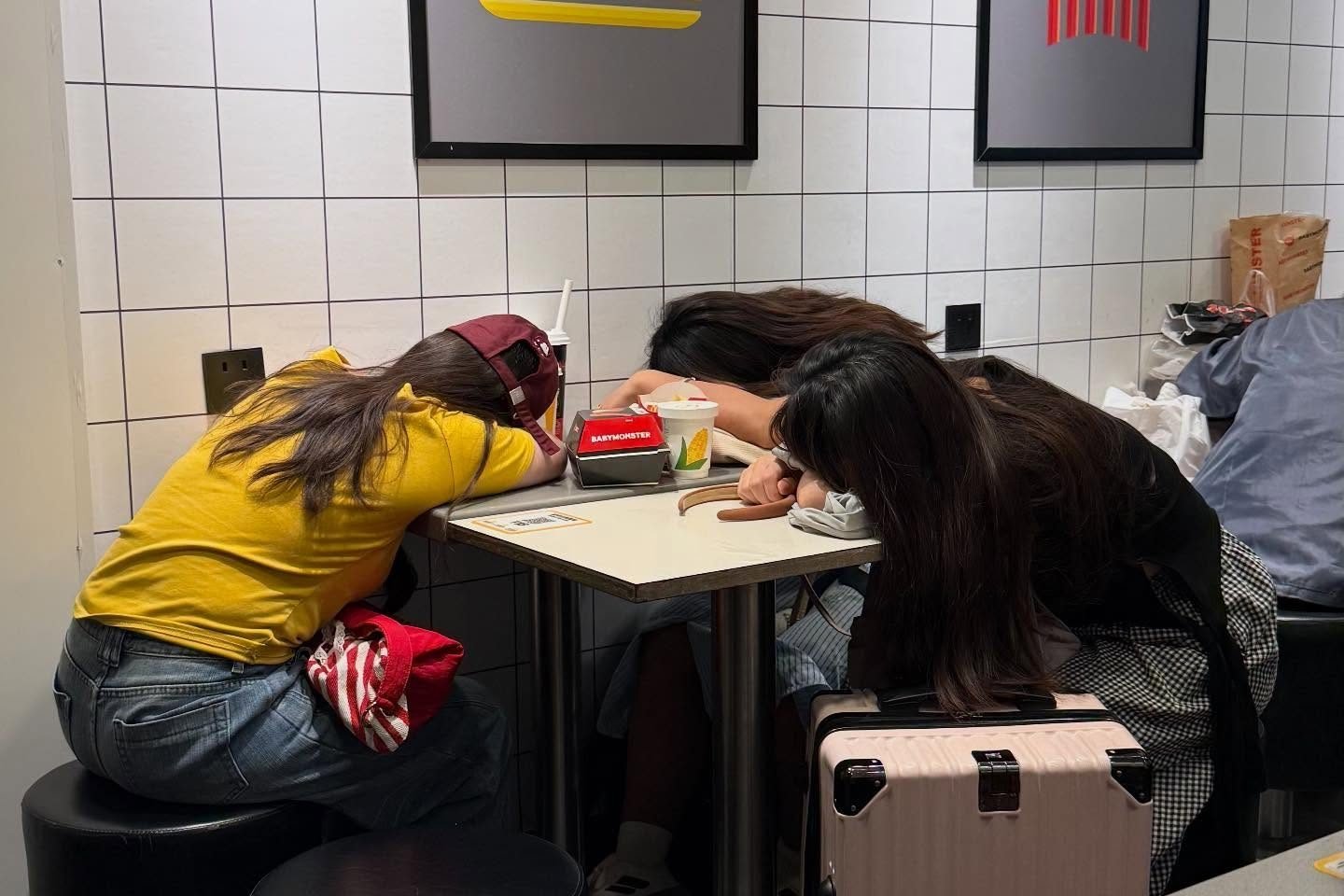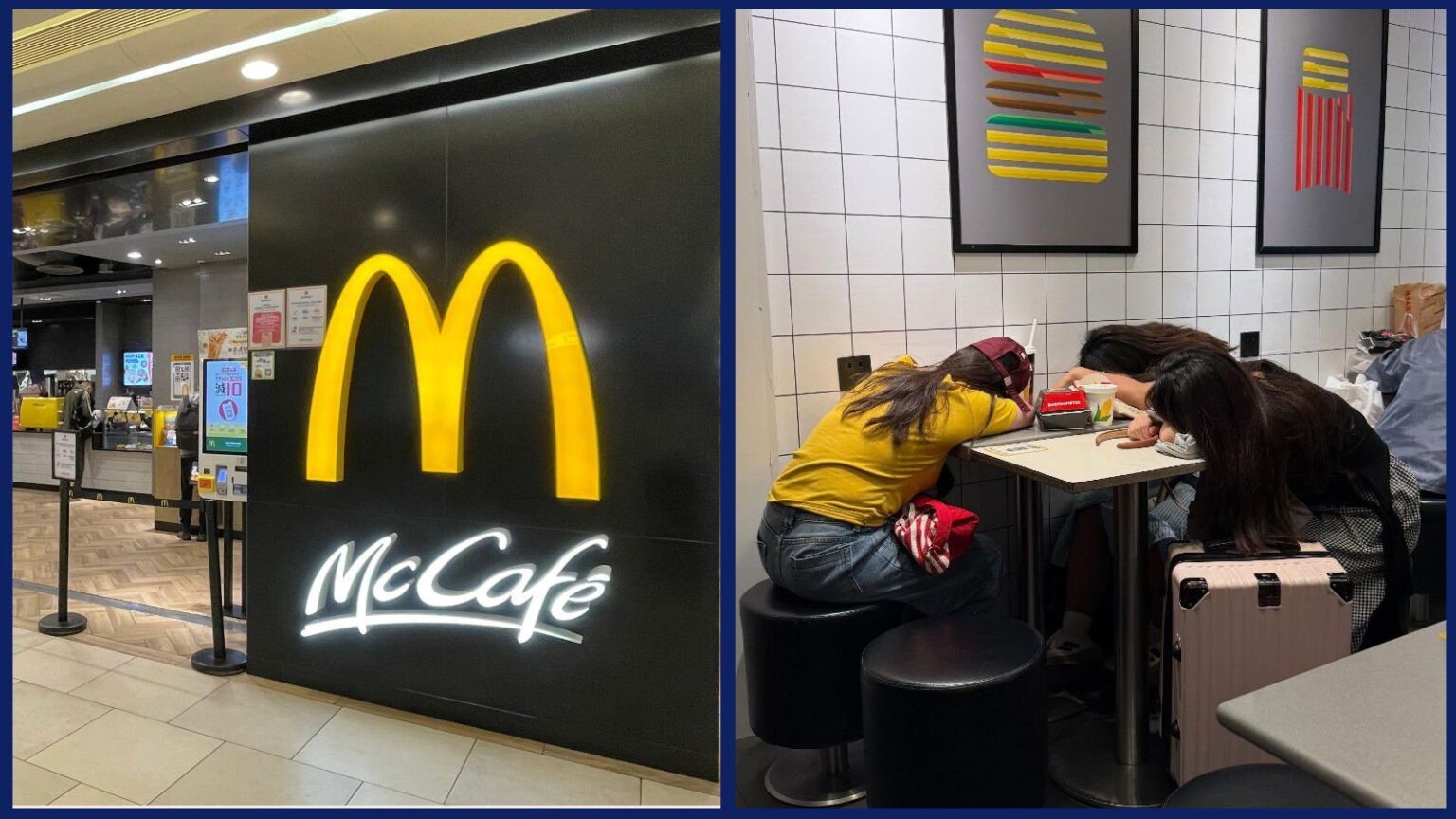China’s Thrifty ‘Special Forces’ Tourists Take Hong Kong by Storm: Sleeping in McDonald’s and Scouring the City for Bargains
- Chinese tourists are embracing a new trend of ‘special forces’ travel, where they pack as many attractions as possible into short, cheap trips.
- Some travellers are taking extreme measures to save money, including sleeping in 24-hour McDonald’s restaurants and hot pot chain Haidilao.
- Despite a surge in tourist numbers, Hong Kong’s retail sales have declined, with experts warning that the trend could have negative impacts on the city’s economy.
In a bid to explore as much of China as possible on a shoestring budget, a growing number of Gen Z tourists are embracing the ‘special forces’ travel trend. Inspired by the efficiency and endurance of military units, these thrifty travellers are packing their itineraries with as many attractions as possible, often at the expense of comfort and luxury.
Oneone Han and Pipi Tang, two Shanghai residents, are among the pioneers of this trend. During their recent two-day visit to Hong Kong, they managed to cram in 14 destinations, including famous sightseeing locales, and spent a mere $360. Their secret? A combination of careful planning, budget-friendly accommodation, and a willingness to take risks.
“We feel fulfilled to visit many places in a short time while saving money,” Ms Han said, adding that the pair are determined to visit every Chinese province by 2026. Mr Tang attributed their success to China’s well-developed rail network, which enables them to make quick visits to different cities.
However, not all ‘special forces’ tourists are as fortunate. Some have resorted to sleeping in 24-hour McDonald’s restaurants, hot pot chain Haidilao, or internet cafes. Photos of Chinese tourists sleeping overnight at a McDonald’s in Hong Kong went viral in May, sparking criticism from locals who deemed the practice “degrading”.

Chloe Cai, a Chinese tourist, spent just $106 during her three-day visit to Hong Kong in May, partly by staying in a McDonald’s one night. However, she admitted that she felt unsafe and couldn’t sleep at all during her night at the fast-food chain.
Despite the surge in tourist numbers, Hong Kong’s retail sales have declined, with experts warning that the trend could have negative impacts on the city’s economy. Mimi Li, a tourism professor at Hong Kong Polytechnic University, noted that while budget travellers increase the number of arrivals, they create problems of over-tourism and overcrowding.
“The spending per traveller has dropped sharply compared to previous years,” she said. “Many tourists no longer stay overnight, dine in local restaurants, or shop in Hong Kong, contributing only minimal revenue to the economy.”
However, Dr Li also saw potential benefits to the trend, suggesting that young people who enjoy visiting Hong Kong might bring long-term benefits if they return later with increased spending power. The Hong Kong government has announced plans to promote visits to local manufacturers and food brands, expand mountain eco-tours, and develop new cultural travel experiences.
As the ‘special forces’ travel trend continues to gain momentum, it remains to be seen whether Hong Kong can adapt to the changing needs of its tourists and find a balance between catering to budget-conscious travellers and maintaining the city’s economic viability.

